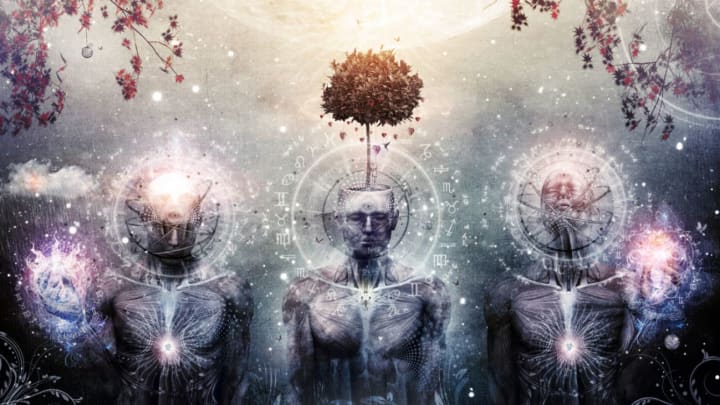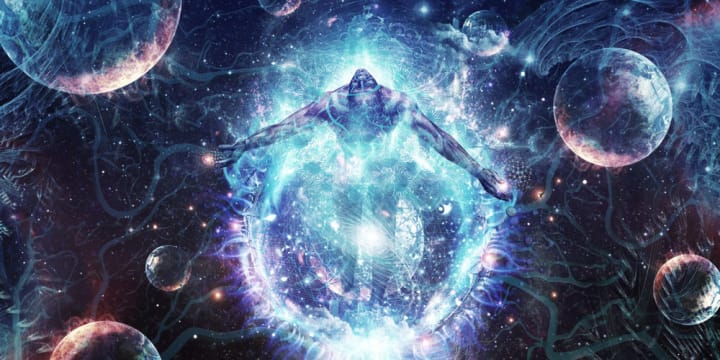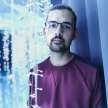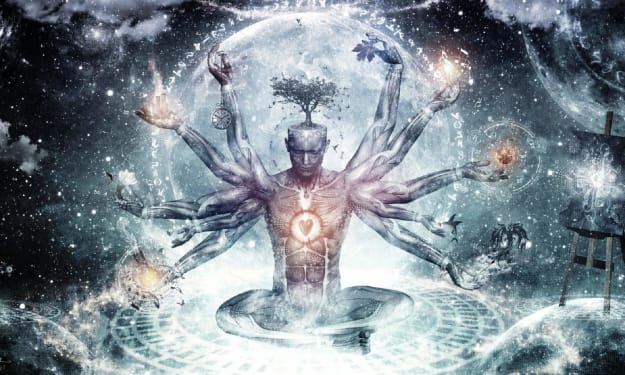
Am I my body? It would seem like I am, but what exactly about my body makes it mine, and is there a line between me and my body? These questions seem simple enough, but they have plagued the minds of philosophers and scientists for millennia.
It feels like I have both a body and a mind. Within my mind are my personality traits, ideas, beliefs, perspectives, memories, and emotions. Meanwhile, my mind exists within a body it controls and uses to experience reality. Without the cells that make up my mind and body, I would not exist. However, my cells can grow outside of my body, such as in a lab. They don't always need me, but I always need them. But if my cells create me, then am I not also them?
If I am also my body, how much of myself can I get rid of before I am something different from myself? If I replaced my limbs with prosthetics, am I less of myself than I was before? If I donated a kidney to you, have I lost that part of myself? Does that part of me become a part of you, or is it a part of me inside of you that you are keeping alive? If we exchanged half of each other's cells, would we become half of each other or half of ourselves?

In 1951, Henrietta Lacks unknowingly challenged the concept of self when she had her cells reproduced in a John Hopkins Medicine lab without her knowledge. She had an aggressive form of cervical cancer in which the cells were essentially immortal, forever dividing even outside of her body in the right conditions. Because of their high durability, scientists around the world sought after them. In 1955, four years after her death, researchers cloned millions of her cells. Since 1951, scientists have cloned approximately 20 tonnes of Henrietta's cells worldwide.
It begs the question, how much of those cells are still Henrietta? Are these clones merely copies of her or are they living pieces of her? If these cultivated clones aren't Henrietta, then is the same true about your cells? Since you've started reading this, you've already lost hundreds of millions of cells. Your body is replacing them by the millions every second. Thus, a part of you is constantly dying. During the process, have you lost some of yourself while creating more of yourself? Are you yourself all the time or an ever-changing version of yourself?
What about when you eat? During digestion, your body breaks down food into molecules that can be absorbed and transformed into functional parts. If the proteins in your meal become the enzymes in your cells, are they now a part of you? When you drink coffee, does it also become a part of you? At which point do these things stop being you?

Everything in our solar system was born from stars billions of years ago. And billions of years after we are gone, those very atoms will likely become a part of our own star when it grows into a red giant. These atoms may eventually be broken down into their fundamental parts in the heart of a black hole. Are these things no longer pieces of us, or were they always us in different forms? If the universe gave birth to the very atoms that are within us now, then aren't we the universe experiencing itself?
Perhaps we are incorrectly defining the "self". It is possible that our individual cells are not "us", but rather give rise to "us". Like all things in the universe, simple parts come together to form complex parts, such as protons, neutrons, and electrons forming atoms, atoms forming molecules, molecules forming proteins, proteins forming cells, cells forming organs, organs forming people, people forming societies, etc.

Maybe the self is merely an emergent property of the system, similar to how a colony of bees is an emergent property of their roles and behaviors. An individual bee is not a colony on its own, but it does help form a colony. You can't touch a bee colony, only its parts. If some bees die, other bees will replace them to fill the role. The colony does not stop existing, it simply changes. Thus, when pieces of the system die or transform, the self remains intact so long as the system is still operating. When the system dies, is it so that the emergent self fades away with it?
Unfortunately, the human brain favors certainties, so it is extremely difficult for us to answer these questions. We may just be a self-sustaining pattern of processes and systems that give rise to a mind with a concept of "self" defined by our awareness. It may be that we are a fluid-like emergence of trillions of individual "selves" working together in a complex system rather than a single "self".
Perhaps simply put, "I think, therefore I am".
About the Creator
Justin Gignac
Hello there! I am a registered nurse with a major passion for writing and language. I enjoy writing about science fiction, mindfulness, health, psychology, wellness, philosophy, and the mysteries of being human.






Comments
There are no comments for this story
Be the first to respond and start the conversation.